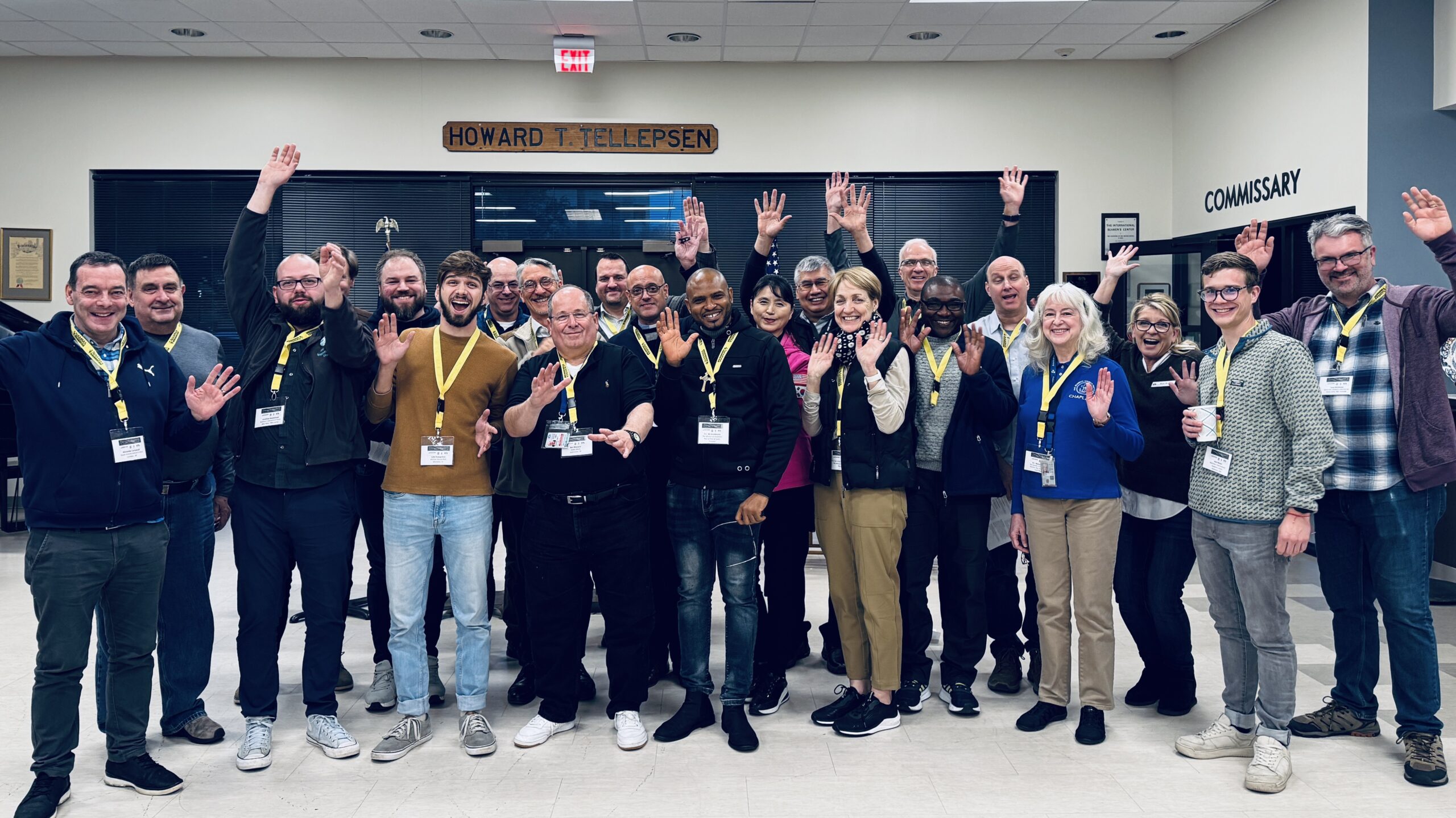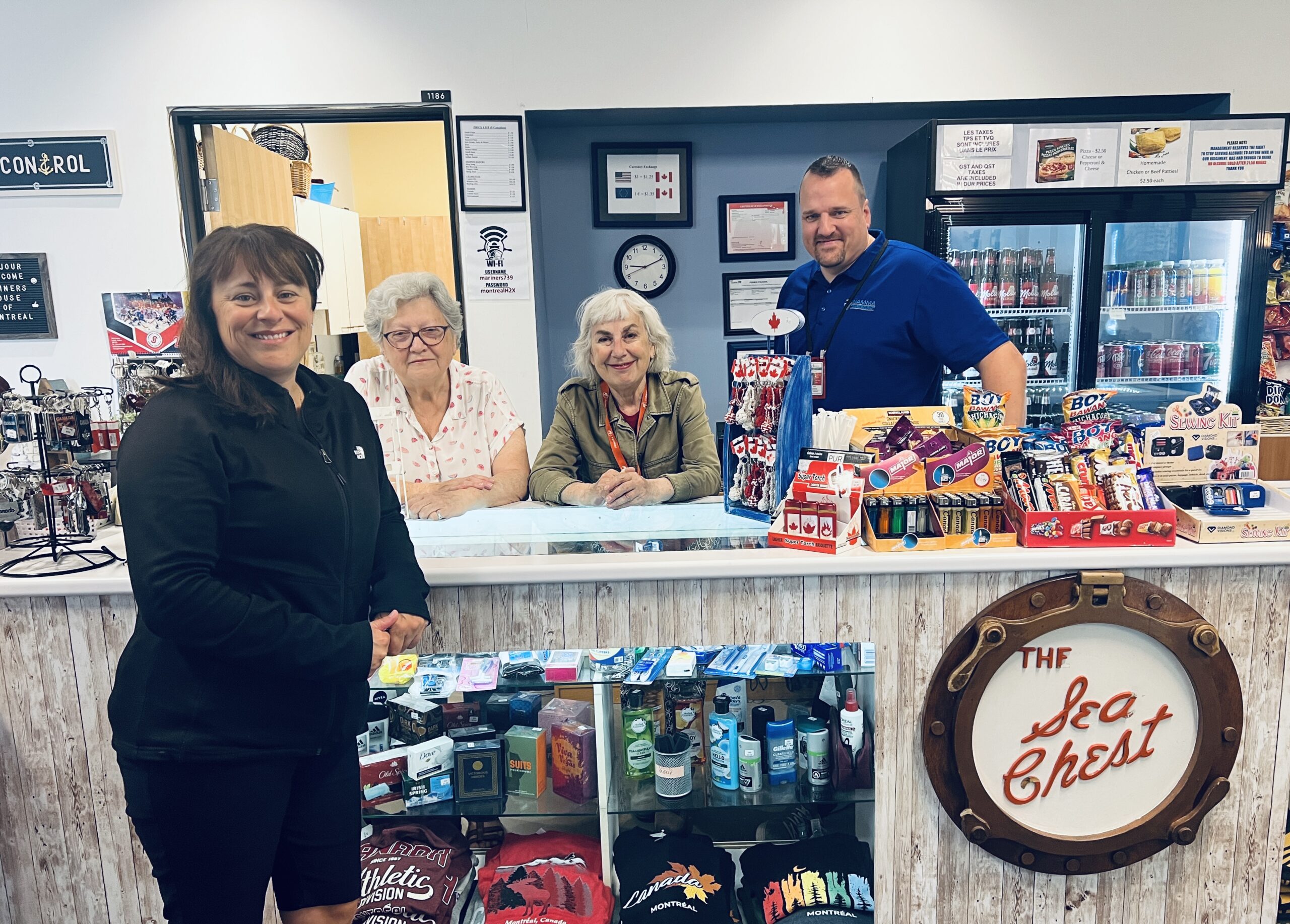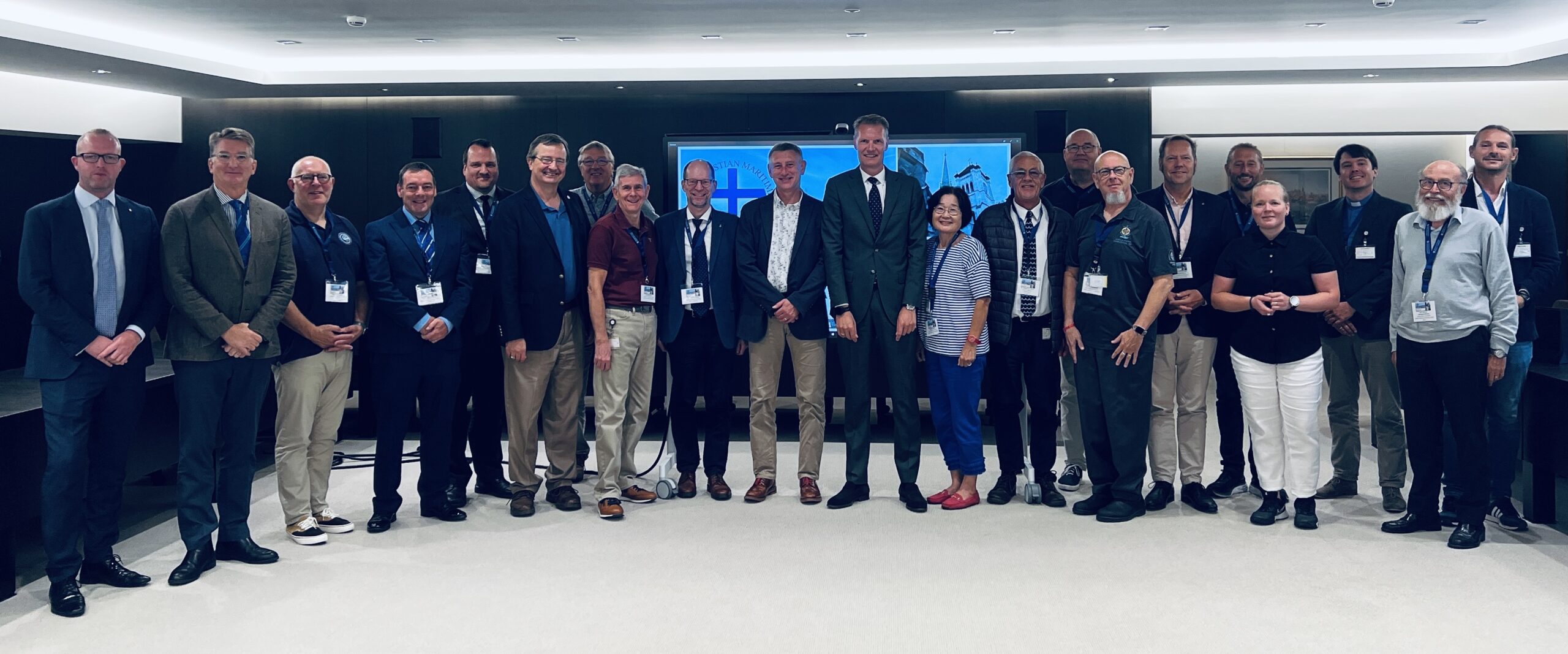by Susan Huppert, NAMMA
Seafarers are embedded in the world of global trade.
This multicultural and religiously-blended population who live and work side-by-side at sea, seldom see home and rarely experience the care and comfort many of us take for granted. The two million workers engaged in the world’s distribution of goods are vitally connected to global economics, but by most measures personally unconnected. Therefore, caring for seafarers is critical.
“Maritime chaplaincy fills an important gap,” said The Reverend Judith Alltree, Regional Director of The Mission to Seafarers in Canada.
Whether a deacon or lay person, the prerequisite is the heart. Caring for seafarers is uniquely different than other ministries. Due to the rarity of meaningful personal contact for those working at sea, maritime ministry workers need a willingness to serve others, regardless of the situation. They are committed to the variables. Whether providing transportation, finding an immediate healthcare option, helping wiring money to a family, or providing personal counsel, port chaplains must prepare to care.
“Caring for seafarers is not the traditional ministry path. This is where the people who don’t fit traditional ministry fit. They are very, very special people,” said Alltree.
North American ministry centers sprinkled along the coasts and the borders of the Great Lakes operate uniquely. Each is geared to reach the seafarers they meet while larger entities provide resources.
The North American Maritime Ministry Association provides a framework for those caring for mariners. The association of about 100 members and 55 affiliated agencies throughout North America and the Caribbean equips those who serve this blend of humanity as consultant and coordinator of services. It leads and comes along side as a valuable asset for a very specific mission.
Deacon Paul Rosenblum agrees. He serves seafarers in the South Carolina port of Charleston as a Stella Maris port minister. Stella Maris, an international agency of the Catholic Church provides pastoral care to seafarers, other maritime workers and their families. Rosenblum began serving seafarers in 2004.
He further recommends the Houston Maritime Ministry Training Program for those preparing to serve.
The program has offered training since 1972. At the Houston International Seafarers’ Center, the specialized education incorporates the knowledge and experience of experts in the field, creating an initial foundation for those new to port chaplaincy.
Chaplains also find ongoing resources and valuable networking using the reach of Stella Maris, Port Ministries International, the Seamen’s Church Institute – Center for Mariners Advocacy, Seafarers’ International House, The Mission to Seafarers or the global International Christian Maritime Association. Each enrich a mission’s work through their specific areas of support for seafarers.
Concerns in operating a mission abound. Enlisting committed volunteers following COVID-19, securing and sustaining funding and operating a center all need attention. However, when seafarers, men and women, step into the day, they become the focus.
Rev. Mark Wodka, Director of the Canaveral Port Ministry in Port Canaveral, FL says meeting the needs of seafarers is the top priority of this Christian outreach.
“Our mission statement is very clear and that is our guideline. We serve in an attitude of love toward one another and toward the seafarers. Jesus said this is the mark of his followers. If we find ourselves doing things outside of that we will have mission drift,” said Wodka.
Building a strong board is important. The regular review of priorities maintains the focus of ministry workers. Wodka recommends a monthly report designed to reflect your goals and mission statement is a good tool for oversight.
“Our board is embedded in the work and the keeper of the mission. They have a passion for seeing God work,” he said. “They are generous with their time and provide amazing oversight.”
Challenges are part of development and growth. Preparing for these realities enhances the practices and wellbeing of ministries.
“When you are in a good place, and things begin to shift, it’s kind of scary,” said Wodka. “You need to check your foundation. You can risk your whole organization becoming unstable if you allow your priorities to get off.”
Jennifer Stewart, Executive Director of Seafarers House, Fort Lauderdale, FL provides leadership to one of the busiest seafarer centers in North America. The cruise ship industry alone brings 150,000 seafarers through Port Everglades annually.
“Communication is very important within our board, our staff and our chaplains,” said Stewart. We are able to have difficult conversations when needed.”
Stewart has been working with seafarers since 2016. She spearheaded the Seafarers’ House first capital campaign of $3.5 million to secure funding for a new facility.
“It is easy to get off track if you don’t stay connected,” she said. “Stay connected to your team, your stakeholders, port community, shipping companies and others in ministry. Each provides insight. We have had times when we were chasing squirrels.”
The Seafarers’ House is guided by their mission: refuge, resources, renewal and respect through multicultural services. Referring back to the established mission statement enables clarity regarding what matters most.
“Seafarers needs are changing internationally,” said Stewart. “Staying current on what seafarers are facing is key.”
“We have short and long-term goals but seafarers also have immediate needs. All needs are different, like being detained for months while the ship is in for maintenance. Providing the care and support they need is priority. When they can’t come to us, we go to them.”
Priorities set the stage. Judith Alltree recalls one ship visit that called for a flexible advocate.
“Daily priorities can change immediately when you have to convince a captain that a crew member on his ship needs medical attention,” she said.
Discerning seafarer’s needs requires active listening. What you are not hearing in conversation with seafarers is very often more important than what you hear. Fear to speak up is a reality for struggling workers. Mental health issues are increasing. Knowing the type of challenges commonly faced is helpful.
Across the globe, seafarers learn to trust those in mission centers. They anticipate a warm welcome and a helping hand, whatever their need.
“One thing that I have learned in preparing for this ministry is to expect the unexpected,” said Rosenblum. “Be ready for things to be different. I am a scientist by training, I like things planned.“
“Port ministry is not like that. This is a very important thing to understand. We are not in charge.”
Seafarers’ lives are always in flux, and when in port, schedules and other variables like U.S. Customs or Border Protection have to be considered, said Rosenblum.
“We all recognize that we are here to do the best we can for the seafarers. That is our priority for two reasons: We depend on them and we have to thank them. Jesus gave us two great commandments. Love God and love our neighbor. Those things should be at the forefront.”





